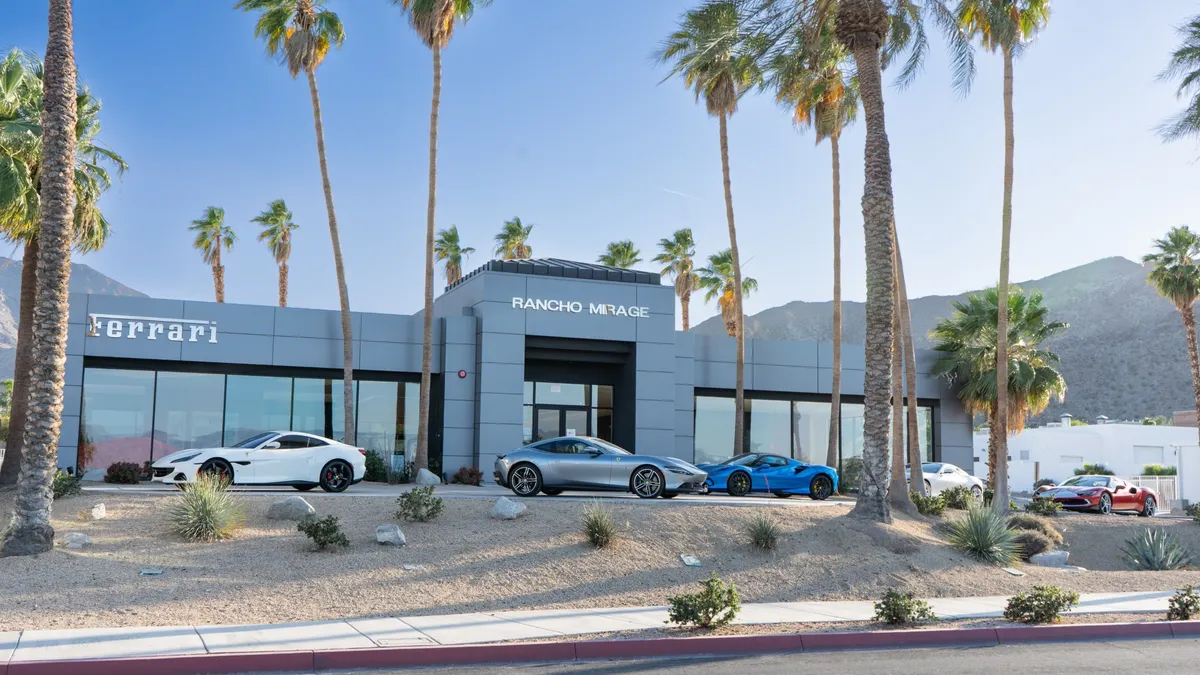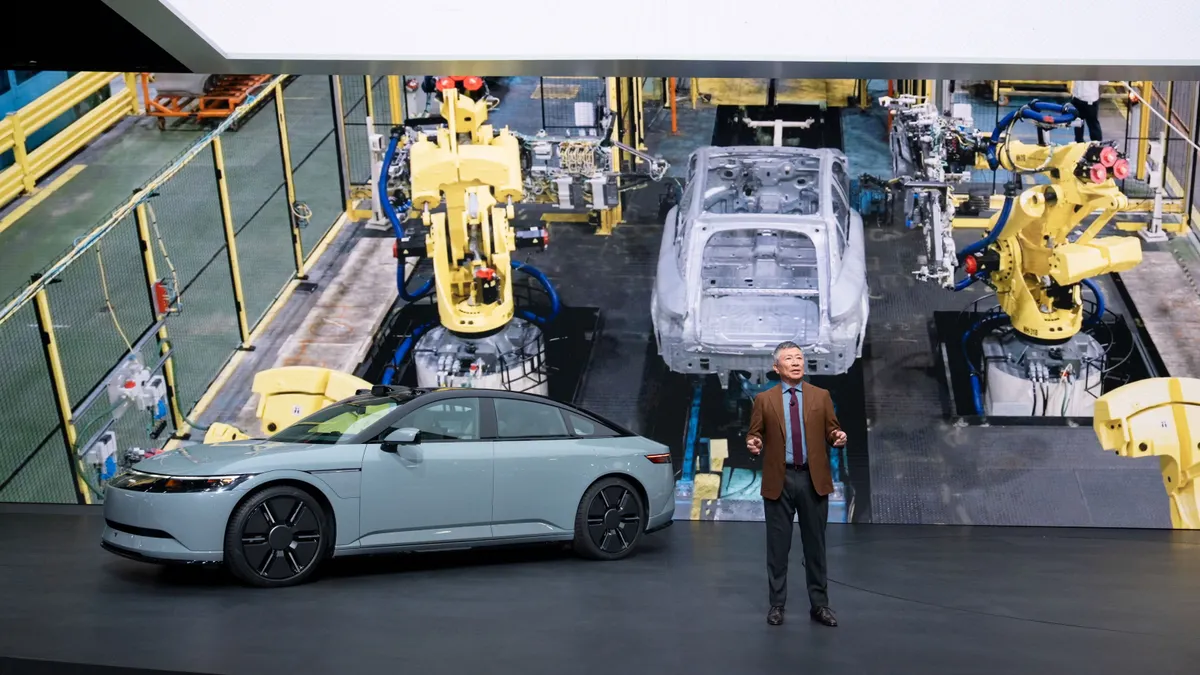Editor's note: This story is part of the WardsAuto digital archive, which may include content that was first published in print, or in different web layouts.
Monday’s planned handshake commencement of UAW-Detroit Three bargaining occurs weeks later than previous years, a signal that a quick resolution is in the offing, say those briefed on the matter.
Unlike previous talks, potentially contentious work-rule issues largely are absent because of 2009’s bankruptcy-induced restructuring at General Motors and Chrysler. This leaves economics as the primary unsettled agenda item.
A quick agreement would do wonders for the image of GM and the UAW, tarnished badly following the auto maker’s Chapter 11 filing.
Both want to be seen in a “more positive” light, says an insider familiar with the negotiations. “Bankruptcy was not a proud moment for either side.”
Despite the recent economic slowdown in the U.S. and its negative impact on new-vehicle sales, UAW President Bob King is adamant that his members must benefit from gains made at Ford, GM and Chrysler since the market bottomed out in 2009.
But he is guarded about the prospect of a speedy conclusion to a round of discussions framed by unprecedented circumstances. “I’ve learned over the years to never predict.”
Still, King concedes this year’s negotiations arrive with less of the hyperbolic punditry than has greeted almost every round of talks since pattern bargaining emerged in the 1940s.
“It’s way different now,” he tells Ward’s. “We are in creative problem-solving with the companies every day. It’s not like it’s this ‘big event,’ because we’ve been dealing with these issues every day.”
The extraordinary circumstances surrounding this year’s talks are outlined in the government-engineered bailouts that rescued GM and Chrysler and directly saved the jobs of some 72,000 UAW members.
Terms of the deal prohibit the union from striking either company, while also banning GM and Chrysler from staging lockouts – something the auto makers have never done.
Deadlocks instead are to be resolved with third-party arbitration.
The prospect of no work stoppages keeps Chrysler “focused on the principals that were embedded in the 2009 agreement,” say those briefed on the matter.
Among those principals was that UAW labor costs be aligned with non-union U.S. plants run by Japan-based Toyota, Honda and Nissan.
This was not easy task. In the period spanning two collective agreements between 1999 and 2007, the per-hour labor price tag at Chrysler, which included the cost of supporting retirees and their dependents, rose from $43.57 to $76, say those briefed on the matter.
Deep cuts in holiday pay and a freeze in cost-of-living increases have combined with the impact of a reduced entry-level wage structure to bring down Chrysler’s all-in cost to between $50 and $51, which is believed to be in line with the Japan Three.
And if the new agreement maintains this equal footing, it could herald a new era of growth for the U.S. industry. Riding a first-half sales wave tracking 21.7% ahead of like-2010 and 8.4% ahead of the industry, according to Ward’s data, Chrysler already has begun adding to its hourly payroll.
The auto maker is “finally out of the business of (severance) packages and putting people out on the street,” say those briefed on the matter. “It’s terribly refreshing.”
GM, which boasts an all-in labor tab of $56 an hour, also is targeting health-care costs, which totaled $665 million in 2010, says a source familiar with the negotiations.
The auto maker is mum on how it will pursue cuts, but co-pay increases introduced in 2007 trimmed significant cost, the source says.
Ford is silent heading into the talks. Its all-in labor costs are in the $58 range, because UAW members there rejected a pattern agreement established to help GM and Chrysler weather the recession.
Because Ford did not require a government bailout and therefore is not subject to the no-strike clause, it could be the wild card in this year’s talks.
The unflappable King does not tip his hand. “I’m very upbeat about the negotiations,” he says.
“The dual goal is to take care of your membership the best way you can, while helping the company to succeed.”
King has said he would entertain discussion about new profit-sharing formulas. GM has its sights on “something that is simple, transparent and has a common set of metrics or a common trigger,” says a source familiar with the negotiations.
There is precedent for an early agreement. The Canadian Auto Workers union stunned the industry in 2008 when it reached a tentative deal with Ford nearly five months before the expiry of an existing contract.
Sam Gindin, an instructor at York University in Toronto and a former CAW economist, says in an email to Ward’s it would “make sense” from a labor relations perspective for the two sides to settle early.
“Nevertheless, the (UAW) leadership does need to re-establish credibility with its members and this demands a certain degree of posturing and ‘some’ success,” says Gindin, who helped engineer landmark gains for the CAW, such as indexed pensions.
“GM is also conscious of rebuilding a relationship to the leadership but isn’t willing to pay very much for it, so – though I’d expect an early agreement with both sides claiming victory (and a group of auto workers rightfully lamenting how far the union has gone in losing its independent role) – these things can sometimes not be so easily accommodated.”
Harley Shaiken, noted labor-studies professor at the University of California-Berkeley, says the exceptional circumstances surrounding the talks could undermine a quick conclusion to negotiations.
“Both sides are approaching the talks in a constructive manner and would like to see a settlement (but) we’re in uncharted waters, which makes things more complicated,” he warns.
“At stake is fashioning a new post-collapse model for the industry and going in new directions with the strong possibility of a higher emphasis on profit sharing or other performance-based metrics. Also, an early settlement carries the political risk that if either side had hung in there they might have gotten more.
“Always hard to predict, but I suspect we'll avoid arbitration but won't necessarily have an early settlement,” Shaiken says.
– with James M Amend





















